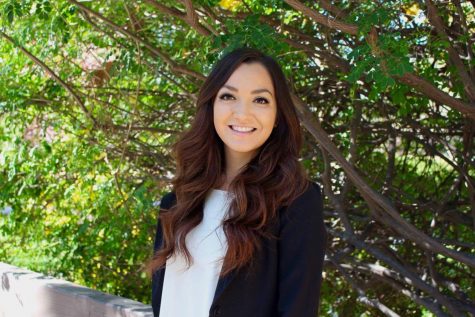More than 1.2 million people in the U.S. are living with human immunodeficiency virus (HIV) according to a 2013 report by the U.S. Department of Health and Human Services.
The report found 51 percent of those people were unaware they were HIV positive.
Pre-Exposure Prophylaxis or PrEP, a recently approved medication by the U.S. Food and Drug Administration is aiming to combat those numbers by reducing the number of non-HIV people that contract the virus. The medicine requires a daily intake by a non-HIV individual in order to work effectively.
The problem is that not many people know about PrEP, and those who do know about it often find it difficult to make an informed decision on taking it.
San Diego State marketing senior Buu Uahc had to do his own research when he first learned of PrEP from his partner.
Uahc went to Student Health Services in fall 2015, but at the time they did not prescribe PrEP and referred him to Sharp Hospital in Kearny Mesa.
“They were helpful and back then they tried to get the prescription on campus but that didn’t work, so one of the doctors gave me the resource off campus,” Uahc said.
In spring 2016, Student Health Services began offering the medicine, Interim Director Darrell Hess wrote in an email.
Hess said they offer guidance to students who are interested in taking PrEP.
“We will evaluate the student for HIV risk and help them determine if taking PrEP is an appropriate choice for them,” he said.
“If the student does not have insurance that will cover the cost of PrEP or if they have a large copay with their insurance, we can help them with the Patient Assistance Program for Truvada.”
Christopher Lujan, SDSU Pride Center coordinator, said that since not many people are familiar with PrEP, the center is trying to get those conversations going by meeting with SHS and talking about the medicine at events.
“PrEP is heavily market to men who have sex with men and trans women, so we make sure that’s visible in this space,” Lujan said.
Providing those resources is crucial because it can be overwhelming to decide on taking a new medication without medical advice.
Uahc said that he uses PrEP as an extra precaution to take care of his health but that he’d advise people interested in taking it to also use protection.
“Don’t fully depend on the medicine,” he said. “Practice safe sex, because it will prevent you from (contracting) HIV but not STDs.”
PrEP is an excellent way for all individuals who might have a higher chance of getting HIV to take an extra step aside from practicing safe sex to take care of their health.
It is beneficial that the service is now offered on campus, making it easier to get PrEP, but there is still more work to be done on educating students about the medication and letting them know it’s available.
Andrea Lopez-Villafaña is a fourth-year journalism major minoring in political science. Find her on Twitter @Andrea_LpV.











